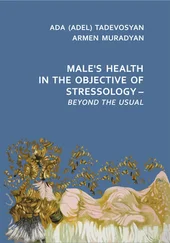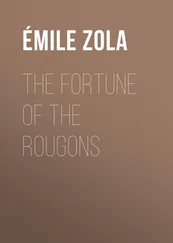Paul thought it over: if the film was in Bucharest, he could see Ann again that very day, but if it had been sent to the provinces, his plan fell apart. He had been so close to bringing it to fruition that now, when he was no longer sure of himself, he had the feeling of missing a long-established appointment with Ann.
“Please check it out,” he said to his client. “Call the storage now and see if they have the film. If it’s there, I’d like to see it today. If it’s in the provinces, then find out in which particular town and which cinema. Excuse me, it’s something I can’t explain, but I have to see that film at all costs, wherever it may be.”
In fact, he was determined to leave for the provinces, wherever the film might be, and in an instant he ran over in his mind the preparations that would be necessary for his departure (a trial that had been adjourned for two days, two letters he would have to dictate hastily to the stenographer…), but within a quarter of an hour he received a phone call that the newsreel that interested him had been found in storage and that he could see it at four o’clock this afternoon.
The projection room was in St. George’s Square, in a small room on the fifth floor, with a low ceiling and the windows blocked up, a real little box, in which the sound of the projector made the outsized din of a factory or an airplane. Paul had first to sit through the end of a film that was being shown for a few provincial cinema owners who had come to Bucharest to contract their movies for the 1934-35 winter season. It was a comedy-adventure, Bolero , with Carole Lombard and George Raft, of which he understood nothing. When the lights came on, those few spectators gave him the suspicious looks they might reserve for a new competitor, and their suspicions became even more acute when, after they were called into the director’s office to discuss contract conditions, he was left there, possibly, they feared, to see a special film, “the hit of the season,” which was being shown only, in total secret, to privileged clients.
Paul remained alone with the projectionist, the lights went out again and, after a few tremors, the images finally coalesced on the screen, and the old newsreel, which he had seen in July in Liège, appeared again before him, looking more pompous than before, as though the print were worn out; the images were blurry and, above all, the screen was much smaller, about half the size of a normal cinema screen. The forgotten scenes of the newsreel appeared one after the other: Sir John Simon, the Foreign Secretary of Great Britain, welcomed Monsieur Louis Barthou, the French Foreign Minister, to a London train station… The San Francisco general strike grew in size. Most of the factories and mills were closed. The total number of strikers had reached 150,000… Ambassador Dogvalevski’s funeral in Paris. The Soviet diplomat’s earthly remains were incinerated at the Père Lachaise crematorium… Chancellor Dolfuss formed a new government, having shuffled his ministers… The opening of the exhibition in Liège… A panning shot of the pavilions, the main gate, the arrival of the royal convoy, they crossed the main street, then suddenly Ann, Ann propped up against her painting, Ann smiling at Queen Astrid, their white dresses, one alongside the other.
Alone in the projection room, very close to the screen, which was no larger than a window, Paul looked Ann in the eyes, yet without emotion. If he had been able to speak to her, if she had been able to hear him, he would have said calmly to her: “I’m going to forget you, Ann, I’m going to forget you, I want to forget you.”
In November, in the Dalles Gallery, an exhibition of Ann’s paintings opened. White posters, soberly typed, but spread around everywhere, announced the opening party well in advance. On every wall, on every public noticeboard, was Ann’s name: November 10 — December 10. Exhibition of new paintings. Oils, watercolours, gouache .
Paul walked past those posters, forcing himself not to see them. Each one seemed to be calling out to him. Before, he used to feel a childish pride in seeing his lover’s name in newspapers, in windows, on walls. Now it struck him as an indiscretion, an abuse — and, in fact, it was possible that never before had there been so much publicity for an exhibition of paintings.
A few days earlier, he had received in the mail, at home, an invitation to the opening party. The typed text announced the party for eleven o’clock, but Ann had added by hand: but it’s not forbidden to come earlier . After several months of silence, they were the first words he had received from her.
He was determined not to go to the launch party, to stay home and review some files, which he had brought back from the office for this purpose. It was a November day, damp, leaden, of the kind that made him feel enervated. The minutes passed slowly, one at a time. He had opened the window and let into the room the damp morning air, the rain, the smell of fallen leaves…
The telephone rang, and Paul let it ring a few times. He had no interest in replying: he wasn’t expecting anyone. He finally lifted the receiver and was dumfounded: it was Ann’s voice.
“Aren’t you coming? Don’t you want to come? Please, please come. I’m stuck here, there are so many people, but I’m waiting for you, Paul, I’m waiting for you, you understand? You’ll bring me luck if you come…”
Paul gave a discouraged lift of his shoulders. Ann was appealing to their old superstitions, a tactic that disarmed him since he was so little prepared to resist it: “You’ll bring me luck if you come…”
At the Dalles, he stopped in the doorway of the front room, looking for Ann. He came in out of the rain wearing his trenchcoat, with his hat in his hand, and shrank from entering: the sound of voices, laughter, exclamations, a rustling of dresses and furs, held him there on the threshold, a little intimidated, a little confused, wondering if it wasn’t already time for him to leave.
Ann, spotting him from the back of the room, waved her hand, signalling to him to wait. She came towards him, making her way with difficulty between the groups of people who blocked her path. She didn’t say sorry to the people she bumped into, and looked steadily in Paul’s direction, with a sparkling intensity in her eyes, as if she wished to cry out to him.
“Why are your hands wet? Did you get caught in the rain? You came here on foot? That’s why you’re late, is it? I didn’t think you’d come. I kept looking at the door. Paul, I was so afraid you wouldn’t come! Could it be, I said, could it be that he won’t come?”
He regarded her without replying: a hard look that asked no questions. She’s here, she’s beside me , he repeated in his mind, surprised that he wasn’t shivering. He would have liked to absorb the news of her return from far away into all his horrible memories, which, although Ann was there beside him, remained alive, like that lost outpost which, although the war has ended, continues to be alert, watchful, because it hasn’t yet received news of the truce.
Ann took him by the arm, leading him into the vestibule.
“Let’s get out of here, Paul. There are too many people. We’ll go far away in the rain. What do you say?”
“You know very well that we can’t, Ann. You’ve got to stay here. It’s your opening.”
“Oh! My opening!” she said, with a casual gesture. “What do you expect me to do here? I want to be with you, with you alone, do you understand?”
She ran out into the rain, bareheaded, as far as the edge of the sidewalk, where she stopped in front of a small blue car with a low-slung body, which she opened with a familiar, irate gesture, struggling to get the keys into the lock in the rain. She shouted to Paul from behind the wheel. He had remained on the stone steps of the entrance, his gaze following her in perplexity.
Читать дальше












